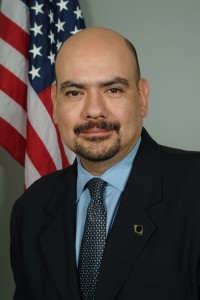This Op-Ed orginally appeared in The Huffington Post.
For the Latino community in particular, Tuesday December 21 is a very big day, and it has nothing really to do with the holidays but rather with numbers and more numbers. The U.S. Census Bureau today releases its official 2010 population figures for the nation, and congressional apportionment totals for each state (reapportionment is the process of dividing all the seats in the U.S. House among the 50 states based on population figures gathered from the U.S. Census).
The numbers let states know if they gain, lose or maintain their congressional seats. Several states are expected to experience gains in the number of House seats, and the Latino population played a significant role in those gains. Furthermore, Latino growth across the country is expected to help certain states maintain their number of congressional seats, or minimize their losses. In other words, it is a win-win for the Latino community specifically and for the country as a whole.
The NALEO Educational Fund is part of a coalition that earlier this year helped advocate for full Latino participation in the 2010 Census, bringing home the message that it’s not just about making sure federal dollars are distributed equitably but that political empowerment is based on a full population count.
The ya es hora ¡Hágase Contar! (it’s time, Make Yourself Count) nationwide campaign helped bring the importance of participating in the 2010 Census to tens of thousands of Latinos, and today we are seeing what exactly that means.
We won’t know until early next year what the Latino population in each state is, but we can gauge from today’s numbers that the Latino impact on what Congress will look like is major.
These early numbers suggest that Latinos across the United States placed a high priority on being counted in the Census and of being full participants in the American political process. The states that experience gains also happen to be areas with significant Latino populations, such as Arizona, Florida and Texas, among others, and in areas with emerging Latino populations, including Georgia, Nevada and Washington State. This means additional opportunities for Latinos to elect candidates of their choice.
This is where redistricting comes in. The Voting Rights Act prohibits the drawing of district lines that may dilute and or divide the votes of Latinos and other groups of color. While reapportionment decides how many representatives each state has, redistricting is the process of drawing new congressional, state and local district lines to see where those representatives will be. The districts created during the redistricting process will decide the political landscape for at least the next ten years, and the Latino community deserves the right to participate in the process to create districts that reflect their needs and electoral preferences. In many states that process is decided by elected officials (and all the problems that may incur, such as protecting incumbency), while other states are setting up citizen commissions. This is why participating in the Census was so important, and why today it’s about making sure Latinos now have the opportunity to translate the Census numbers into fair representation.
Arturo Vargas is the Executive Director of the National Association of Latino Elected and Appointed Officials, a national membership organization of Latino policymakers and their supporters governed by a 25-member Board of Directors. Arturo also serves as Executive Director of the NALEO Educational Fund, an affiliated national nonprofit organization that strengthens American democracy by promoting the full participation of Latinos in civic life.
The NALEO Educational Fund’s programmatic activities include U.S. citizenship outreach and assistance, civic participation and integration, voter engagement, technical assistance to elected and appointed Latino officials, research on Latino demographic and electoral trends, and policy analysis and advocacy on access to the democratic process.
Arturo is a nationally recognized expert in Latino demographic trends, electoral participation, voting rights, the Census, and redistricting.
Arturo holds a masters degree in Education and a bachelor’s degree in History and Spanish from Stanford University


In retrospect,the Census figures may turn out to be bittersweet for some Hispanic communities. Most of the gains were in Republican leaning states. Republicans demonstrated that they are not friends of the Latino community when they voted to defeat the DREAM Act.
Texas gained four seats (most liklely due to Latino growth) but Republicans gained a supermajority in the state legislature which puts them in control of the reapportionment process. I wonder how Republican gerrymandering will affect Latinos and their voting power.